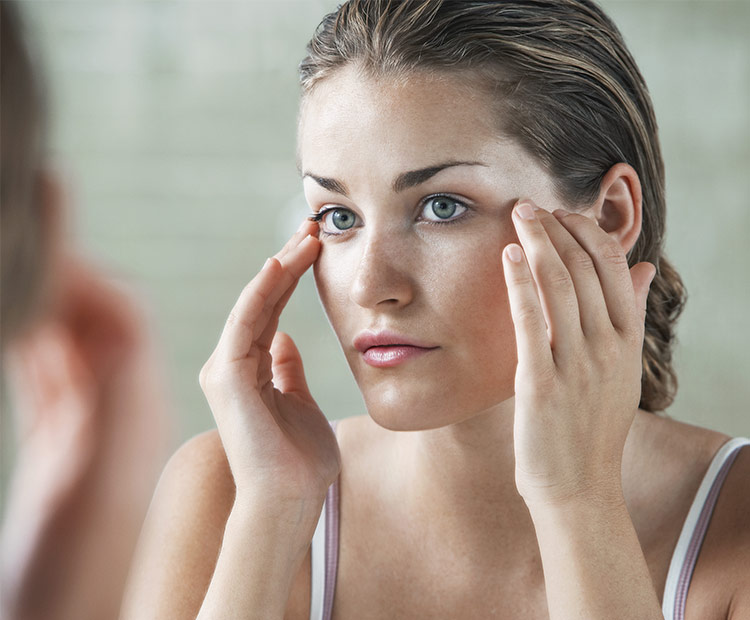What Is the Baumann Skin Type
We’ve been told that one of the biggest skin care mistakes we can make is to use products that aren’t compatible with our skin type. But, according to Dr. Leslie Baumann, CEO of Baumann Cosmetic Dermatology and author of New York Times best-seller The Skin Type Solution, there’s an even bigger concern: not knowing how to properly assess your skin type.
“Properly identifying skin type is key for positive skin care outcomes,” says Dr. Baumann. “But the problem with the traditional classifications (normal, dry, oily and combination) is that they provide very little information about the skin.”
To give us a more accurate way of diagnosing our skin type, Dr. Baumann developed the Baumann Skin Type, a patent-pending skin-typing system that categorizes the skin according to 16 unique skin types. Each skin type is a combination of four different components: dry or oily, sensitive or resistant, pigmented or non-pigmented, and wrinkle-prone or tight. So instead of Normal, Dry, Oily, Combination and Sensitive Skin, your skin type could be something like Dry-Resistant-Pigmented-Tight (DRPT) or Oily-Sensitive-Nonpigmented-Wrinkle-Prone (OSNW).
To determine which of the 16 skin types your skin belongs to, Dr. Baumann, together with board-certified dermatologist and long-time follower of the system Rebecca Kazin, M.D., FAAD, broke down each component for us.

DRY (D) vs. OILY (O)
- Major Identifiers
Dry Skin: Rough texture, dull color and tightness, especially after cleansing
Oily Skin:Shine, acne breakouts and visible pores
- Influencing Factors
Sebum production. “Sebum creates a fat-based film on the skin, which may also have an effect on skin hydration,” Dr. Baumann explained. “The ability of the barrier layer (the stratum corneum) to help hold in moisture also plays a role, as well as the natural levels of hyaluronic acid in the skin.”
SENSITIVE (S) vs. RESISTANT (R)
- Major Identifiers
Sensitive Skin: Often reacts to skin care products with redness, burning or acne
Resistant Skin: Rarely experiences negative side effects
- Influencing Factors
The skin’s stratum corneum. “This layer of the skin serves as a barrier to keep hydration in and irritants out, and the strong stratum corneum associated with resistant skin can make the skin resistant to the beneficial effects of skin care ingredients due to less absorption,” explains Dr. Baumann.
- Suitable Products
Sensitive Skin: Reach for anti-redness formulas that contain soothing, anti-inflammatory ingredients like licorice root extract, vitamin E and tea tree oil, and avoid retinoids, glycolic acid, benzoyl peroxide and fragrance.
Resistant Skin: Feel free to opt for products with stronger and higher concentrations of active ingredients.
PIGMENTED (P) vs. NON-PIGMENTED (N)
- Major Identifiers
Pigmented: Dark spots and/or uneven skin tone
Non-Pigmented: Even skin tone
- Influencing Factors
The skin’s tendency to develop unwanted pigment. “Unwanted pigment can be sun-induced, as in melasma, solar lentigos and freckles, or due to injury in the form of post-inflammatory hyperpigmentation (PIH),” shares Dr. Baumann. Skin color also plays a role. “Generally, the darker your skin color, the more at risk you are for hyperpigmentation,” adds Dr. Kazin. - Suitable Products
Pigmented: Products that contain lightening ingredients. “Hydroquinone has long been the gold standard,” says Dr. Kazin. “But for patients concerned about side affects, I recommend ingredients like kojic acid, vitamin C, arbutin and lignin peroxidase.”
Non-Pigmented: Religious application of sunscreen for prevention
WRINKLE-PRONE (W) vs. TIGHT (T)
- Major Identifiers
Wrinkle-Prone: Lines, wrinkles and sagging
Tight: A smooth and taut complexion
- Influencing Factors
Sun exposure, age, ethnicity, genes and lifestyle habits. “There is still a genetic component to this parameter, but sun exposure is the primary cause of skin aging due its destructive effect on essential skin proteins like collagen and elastin.”
- Suitable Products
Wrinkle-Prone: Products with anti-aging ingredients that stimulate collagen production, such as retinol
Tight: Sunscreen to maintain the skin’s youthful appearance
READERS—Was this article helpful? Share your comments with us in the comments section below.















![Toni Kroos là ai? [ sự thật về tiểu sử đầy đủ Toni Kroos ]](https://evbn.org/wp-content/uploads/New-Project-6635-1671934592.jpg)


